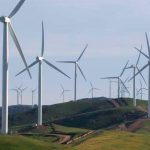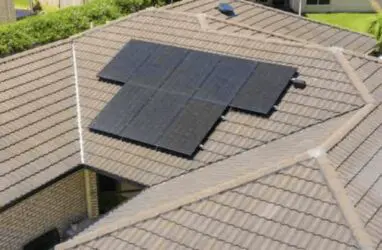Feed aggregator
Biochar doesn’t just store carbon – it stores water and boosts farmers’ drought resilience
PREVIEW: Washington’s Q3 auction forecasts clouded by programme uncertainty
Wind and solar dominated South Australia overtakes Tasmania as Australia’s most renewable state
The post Wind and solar dominated South Australia overtakes Tasmania as Australia’s most renewable state appeared first on RenewEconomy.
PREVIEW: Traders expect discounted RGGI Q3 auction clear, compliance participation key
South Korea deal advances works on world’s biggest renewable hydrogen hub in W.A.
The post South Korea deal advances works on world’s biggest renewable hydrogen hub in W.A. appeared first on RenewEconomy.
Sunshine state leads solar rankings with PV on half of all homes, but more work to do in “critical decade”
The post Sunshine state leads solar rankings with PV on half of all homes, but more work to do in “critical decade” appeared first on RenewEconomy.
Washington CFS overhauls validation, verification in draft regulation
UPDATE – Latest NZ ETS auction sees another bidless round
Let’s be honest: Australia’s claim to have cut climate pollution isn’t as good as it seems | Adam Morton
Take renewable energy out of the equation and there isn’t much else expected to reduce fossil fuel use this side of 2030
Australia has a problem with greenhouse gas emissions – a bigger problem than the political debate concedes.
Late last week, as Australians endured record August warmth and global heating-fuelled extreme rain, the federal government released data that suggest heat-trapping gases across most of the economy are currently headed in the wrong direction or yet to budge much from historic highs.
Sign up for Guardian Australia’s breaking news email
Continue reading...If Australia wants to fast-track 100% renewables, it must learn from Europe’s risky path
Nice auction, but Ed Miliband is still a long way from his 2030 targets for offshore wind | Nils Pratley
Arithmetic over capacity does not add up, with supply chains a constraining factor
It was a “record-setting auction” and “a significant step forward in our mission for clean power for 2030”, trumpeted the energy secretary, Ed Miliband, enjoying the contrast with last year’s auction flop under the Tories in which precisely zero bids were received to build offshore windfarms.
Miliband was claiming credit when it wasn’t entirely due, of course, because this year’s competition was designed well before the general election. Some version of success was guaranteed from the moment the last government said it was prepared to pay up to £73 a megawatt hour (in 2012 prices, confusingly) for offshore wind, a mighty leap from the £44 level that produced no takers in 2023. At the higher level of incentive, developers were bound to come out to play again.
Continue reading...





